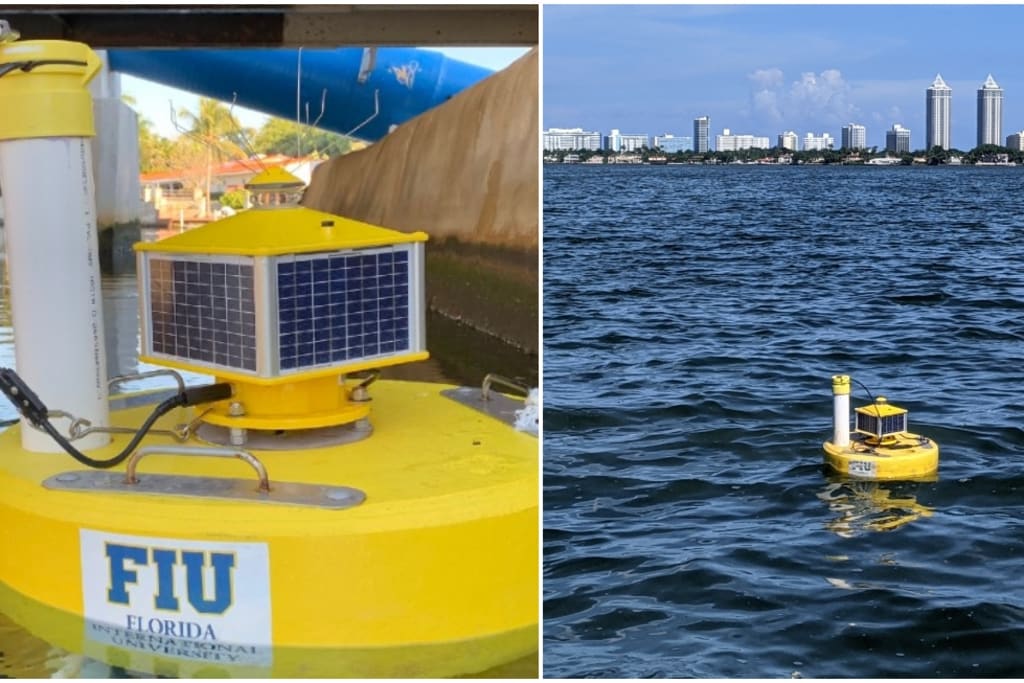|
Getting your Trinity Audio player ready...
|
FIU is hitting it out of the park once again. Thanks to members of Congress, who in a bi-partisan effort supported the university’s initiatives, and the work of FIU advocates, the university has been designated by federal law to receive $5.5 million in new direct earmarks to fund key research and initiatives with community impact.
This is the first time since 2009 that Congress pursued providing earmarks, formally referred to as Community Funding Projects, to institutions or initiatives, and FIU was at the top of the list. That means Congress voted to provide funding for specific FIU projects. The university is among the higher education institutions that will receive the most individual earmarks in the United States in this budget.
“This is a testament to the excellence and leadership of our faculty researchers and students,” says Michelle L. Palacio, senior vice president of the Division of Strategic Communications, Government and External Affairs. “Our Florida delegation in Congress went above and beyond advocating for FIU. They supported our projects because they believe in our mission to find solutions to some of the most pressing problems affecting our community. We are incredibly grateful to them for their support of FIU.”
Research prowess
The university will receive the following funds for top-notch programs, and, in many cases, will allow FIU researchers to build on groundbreaking work they have begun or have sought to establish:
- $2 million from the Health Resources and Services Administration for the Robert Stempel College of Public Health & Social Work to develop a PET/Cyclotron Center at FIU, secured by Congresswoman Debbie Wasserman Schultz. The center, which would be the first of its kind in the state university system, will allow the university to perform imaging studies on several diseases particularly prevalent in the community. There is a critical need to understand the molecular and cellular bases of neurodegenerative diseases such as Alzheimer’s and Parkinson’s disease, cardiovascular disease, cancer, psychiatric disease, substance abuse and many others. A combined PET and cyclotron technology at FIU will provide insights on the pathophysiology of these diseases and advance clinical trials and the development of novel therapeutic approaches.
“Ensuring a PET/Cyclotron is in South Florida is a critical step towards advancing FIU’s collaborative leadership nationally, and with key regional research partners across the country. This will help ensure earlier detection, diagnosis, and treatment of multiple devastating diseases that disproportionally affect our aging and minority populations.” – Congresswoman Debbie Wasserman Schultz
- $2 million from the National Oceanic and Atmospheric Administration (NOAA) for the College of Arts, Sciences and Education’s Biscayne Bay Water Quality Testing Network, secured by Congresswoman Maria Elvira Salazar. Florida Red Tide arguably represents the primary harmful algal bloom of concern. It is now threatening the east coast of Miami-Dade County, impacting human and wildlife health and affecting the tourism-driven economy of the area. The funding will allow FIU scientists to develop and deploy a monitoring system, utilizing state-of-the-art technology and techniques (including using drones and autonomous sensing vessels) that will predict the extent of future toxic algal blooms in the Biscayne and Florida Bays. The data will be available in real-time data base, built on the scientists’ 20-year records, collected along a series of monitoring stations.
“The Aquarius Coral Reef Observatory is a model research facility, serving FIU and countless others. I have had the privilege of seeing the observatory firsthand and value the terrific work conducted by FIU’s Medina Aquarius program in monitoring the ecological health of the Florida Keys. The funding that I was able to secure for Aquarius will help ensure FIU’s great work persists and expands so that the people and communities that depend on a healthy coastal ecosystem can continue to thrive.”
– Congressman Mario Diaz-Balart
- $1 million from NOAA for the College of Arts, Sciences and Education’s Medina Aquarius Program instrumentation project, secured by Congressmen Mario Diaz-Balart and Carlos A. Gimenez. The economy of Florida is largely supported by a healthy and sustainable ocean. These funds will be used to add new oceanographic instrumentation and communications capabilities to FIU’s undersea lab, Aquarius Reef Base — the only facility of its kind, which is deployed 60 feet beneath the surface of the Florida Keys National Marine Sanctuary. The instrumentation will establish a uniquely capable observation system at Aquarius Reef Base and will help scientists understand the conditions that drive the health of the ecological systems of coastal south Florida (the chemistry, biology and physics of the changing ocean). The data will be made available in real-time online so anyone, anywhere in the world can monitor the conditions of the Florida Reef tract.
- $500K from the Small Business Administration for StartUP FIU and technological and entrepreneurial training in the City of Miami, secured by Congresswoman Salazar. To do its part to continue fueling the Miami Tech movement, StartUP FIU — the university’s innovation and entrepreneurial training grounds — will partner with community and local governmental organizations to develop a StartUP FIU Tech Hub in Florida Congressional District 27. The funds will be used to establish a physical footprint in the district, in partnership with a community or governmental organization; to develop a 21st-century skills curriculum (topics will range from digital marketing and social media to e-commerce and data analytics); and to offer new programming, mentorship and networking opportunities while ensuring the Miami Tech movement is accessible and inclusive of all residents.
Additionally, FIU secured a $10 million increase to the “Coldspray” additive manufacturing program at the U.S. Army Research Laboratory. Coldspray technologies — 3D printing for metals — aid in the repair, design and durability of high-performance materials that will be used to manufacture next-generation vehicles and munitions. FIU also secured $5 million for the Department of Transportation to launch a bridge technologies clearinghouse.
Tomás R. Guilarte, dean of the Stempel College and the lead researcher behind the PET/Cyclotron Center at FIU, says the federal funds will make it possible for the university to reach new heights — and to serve the community in an even greater way. While the total costs to launch the center will be around $10 million, the $2 million in federal funds is a crucial first step, kickstarting this important initiative.
“This will advance FIU’s reputation and research enterprise and open up opportunities that are not possible at the present time,” he says. “We’re extremely excited. If you’re studying Parkinson’s or Alzheimer’s disease, it’s really very difficult to understand the biochemistry of the living brain and how it changes over time without this technology. This is a major step for our FIU, and with such a center, we will be able to help our community combat these diseases and open opportunities for research, teaching, collaboration and philanthropy.”
“This money will be greatly beneficial for the Aquarius Coral Reef Observatory at Florida International University. Coral reefs are an incredibly important part of South Florida’s ecosystem and more needs to be done to not only preserve them for our future generations, but also learn more about their important functions to our ecosystem.”
– Congressman Carlos A. Gimenez
Advocacy impact
Funding successes like these are the product of FIU’s robust advocacy efforts by university deans, faculty members and alumni advocates. Carlos Becerra, associate vice president of government affairs, has for years been leading efforts in Washington, D.C., to raise awareness about FIU’s research with decision-makers. The work has clearly demonstrated FIU’s potential to Congress members who are steadfast supporters of the university’s research and initiatives.
FIU’s strength in the nation’s capital lies in the university’s ability to connect with a wide circle of leaders and officials from the public, private and nonprofit sectors as well as FIU alumni who’ve stepped into positions of authority. The synergy makes for a dynamic environment that leads to greater visibility, more opportunities for collaboration with other entities and a growing reputation as a source for leading researchers and workforce-ready employees.
The new earmarks build off of recent success. During the 2020-2021 fiscal year, FIU garnered $74.3 million in appropriations increases and secured grants through faculty advocacy and programming in Washington, D.C. Additionally, 65 programs were presented to policymakers by faculty experts in areas of FIU preeminence such as water quality, the future of tech talent and brain health.
This summer, the university is also claiming a new and expanded location just steps from the Capitol building to double down on efforts to showcase FIU as a go-to solutions center while providing transformational leadership opportunities for students.
Faculty will utilize the facility, known as FIU in DC, as a briefing center to support agency collaboration — including on these earmark project initiatives — and host executive education conferences with partners around the country looking to learn about the latest advances coming out of FIU research centers in Miami.
“Our faculty researchers know that walking the halls of Congress is an extension of the critical work that happens in a lab,” Becerra says. “Policymakers need solutions for tomorrow’s challenges and FIU is providing them with just that.”








